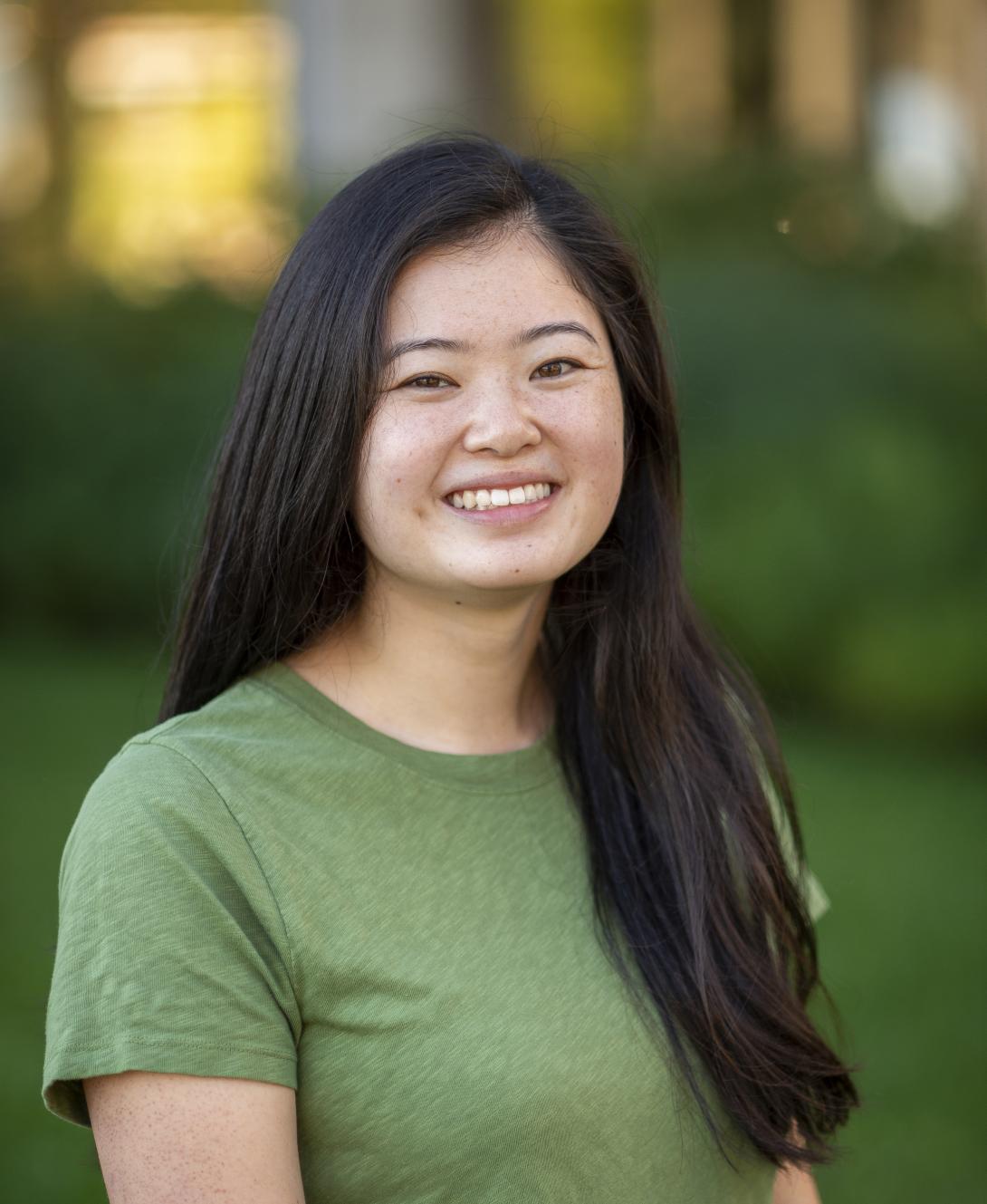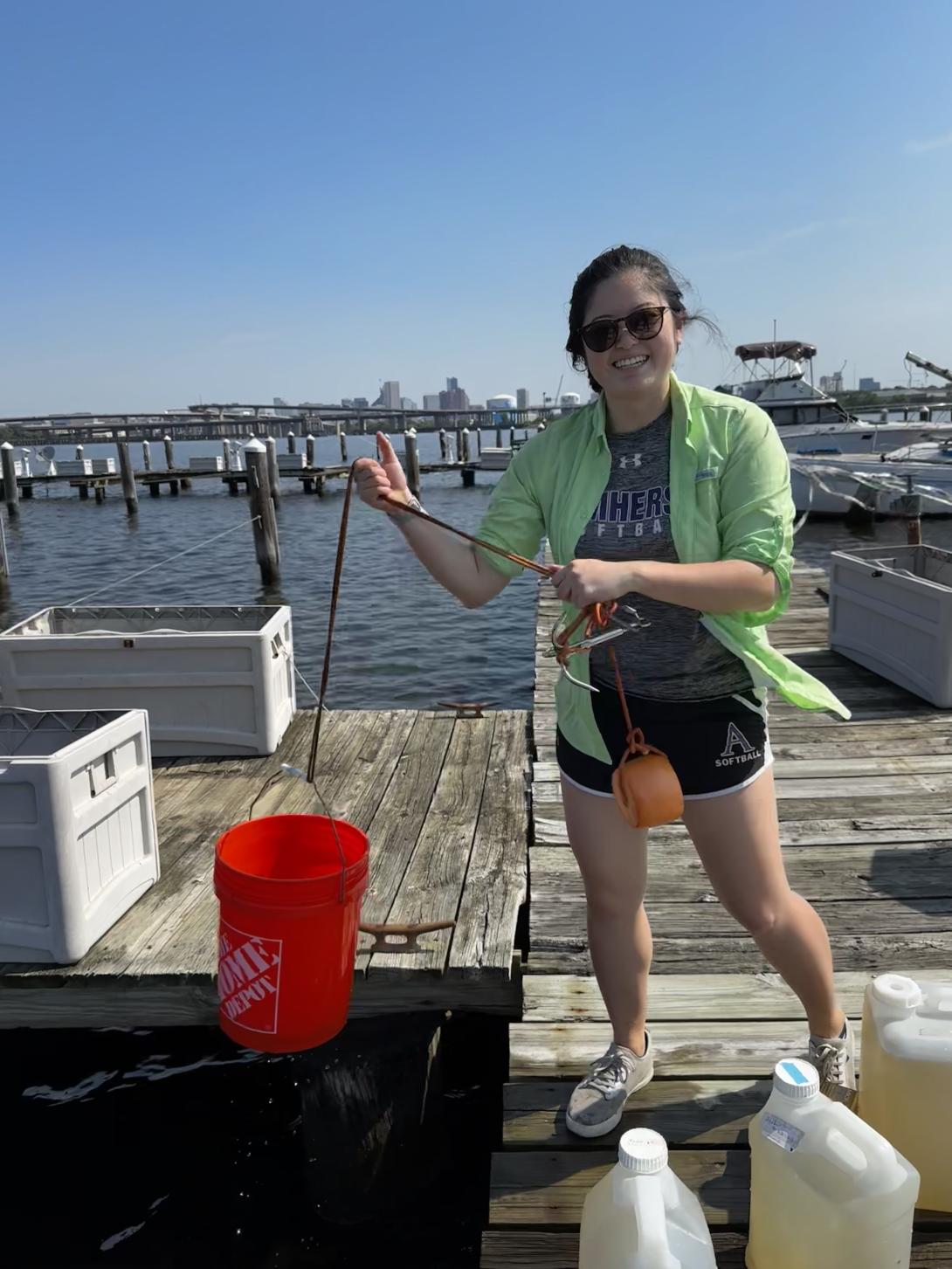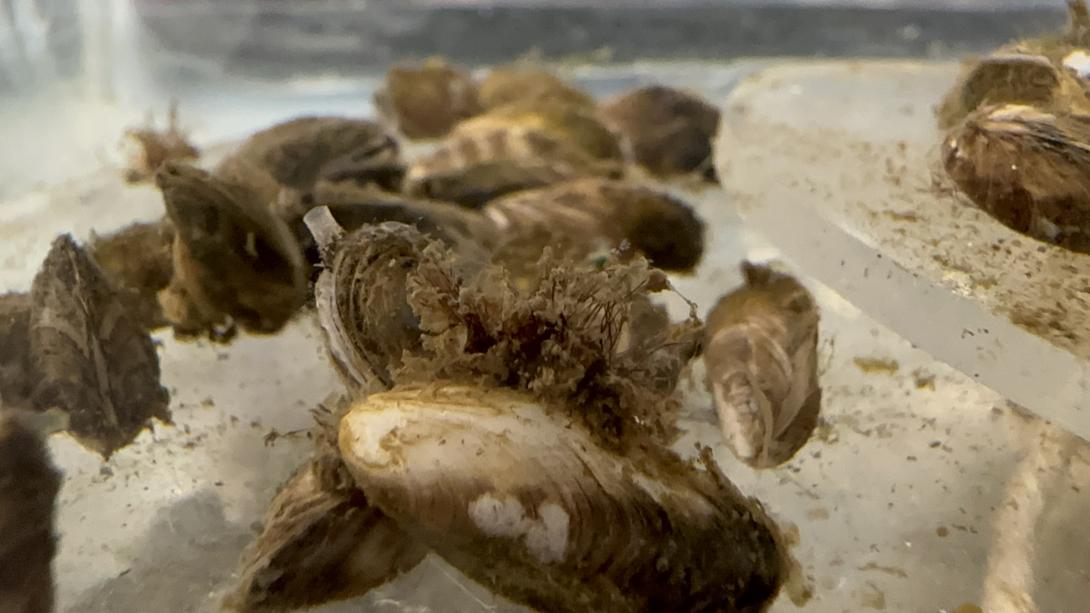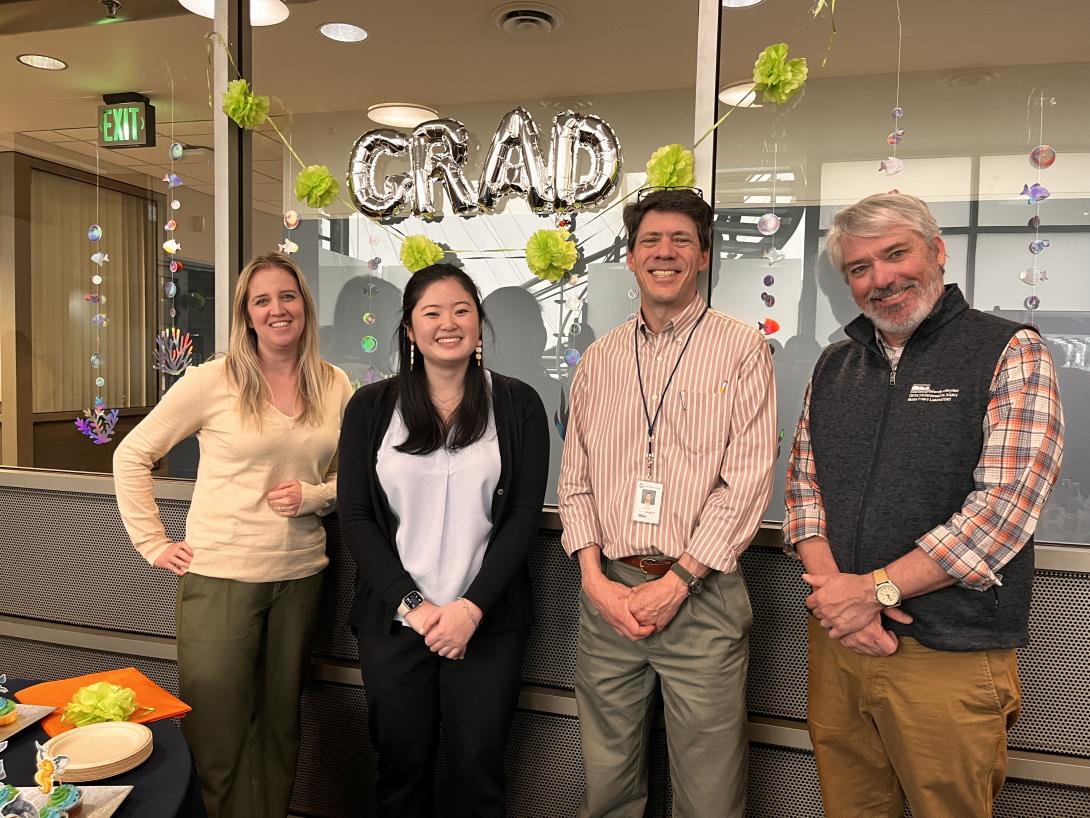Deep Dive with Allyson Kido: IMET GSA President

Allyson “Ally” Kido is a graduate student in the MEES program and an ICARE trainee studying ecosystem services provided by mussels in Baltimore Harbor, in the lab of Dr. Eric Schott. As the newly elected president of the IMET Graduate Student Association (GSA), we sat down and asked Ally about her GSA presidency, her research and how it benefits the Baltimore community.
Why did you want to become the IMET GSA President?
“As a first year graduate student coming in, I realized how useful the GSA was for me at the time. With this in mind, I wanted to give back to the new incoming students in order to make sure they had that same support system that I had. IMET can be an intricate place due to the amount of resources and institutions we are a part of. I felt it to be important to have someone there to guide the new students through figuring out things such as registering for classes. Organizing communication channels through UMCES, UMBC and UMB is really important in helping new students find their way.”

What is your biggest goal for the GSA this year?
“My biggest goal is to increase participation among the GSA. I have a big goal of encouraging graduate students to come to events while also maintaining attendance at our GSA meetings. I would see my fellow grad students in our GSA meetings but never knew what they were actually studying, which is why I started the GSA symposium. This consists of gathering everyone on each floor and learning about what everyone is studying. The GSA symposium was created for grad students to foster an informal environment where you don't feel pressured as a grad student to put on your best performance. It’s an environment where we can come in as our full selves and let our guards down a bit.”

What are you researching and why is it important?
“I study dark false mussels (Mytilopsis leucophaeata) which grow abundantly in the inner harbor and are about the size of your fingernail. I am looking into how these mussels can reduce algae blooms in the inner harbor. Often people think of oysters as the prime source of water quality. Because there is not an extensive enough natural population of oysters in the Chesapeake Bay, it becomes difficult to reap the benefits that the oyster provides. My work is looking at the potential of these native bivalves to improve water quality in the Chesapeake Bay.”

Why did you choose to pursue your graduate degree at IMET?
“I was very interested in the work that Eric Schott was doing at IMET. I thought Eric had a unique knowledge base with disease ecology, the blue crab and the virus work he does but also had this ecosystem service side of things. I previously worked in Eric's disease ecology lab, so I was looking for an opportunity to branch out into more environmental projects as that is where I see myself in the future. At that same time, I applied to the ICARE program (Interdisciplinary Consortium for Applied Research in the Environment) which is affiliated with UMBC. I loved the idea of being able to study an urban estuary and be part of a consortium of like-minded grad students working on projects happening in the Baltimore Harbor."
Ally successfully defended her MS thesis on Thursday April 4th. Congratulations, Ally!